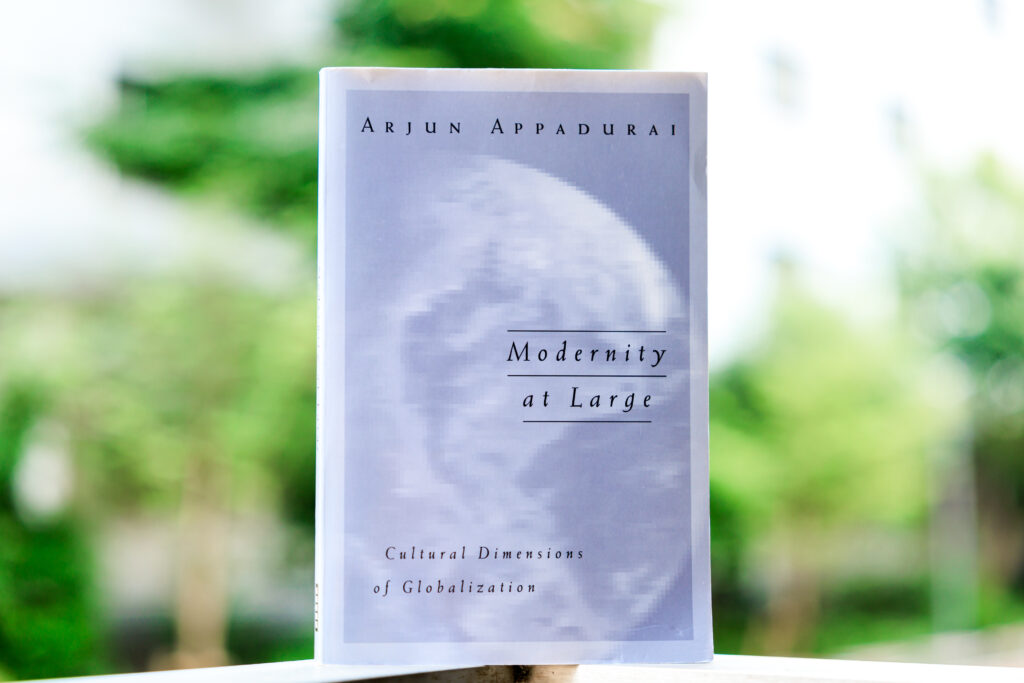
Professor Mauro Neves of the Faculty of Foreign Studies explores how works of popular culture are produced and consumed across nations through text analysis and field work. Because of its proximity to people’s daily lives, he believes that pop culture studies can be a gateway to deeper understanding of other societies and people.
Looking deep into the popular cultures of different countries helps one understand the social backgrounds and structures that produce them. Learning about how pop culture of one country is exported and consumed in another country allows one to gain insight into the relationship between the two nations not only in isolation, but also within a wider international landscape.
In the present world, where almost all the issues of a region are connected somehow with other regions, it is ultimately important that we continue to enhance and keep up our understanding of other societies that are constantly changing. One way to do this is through the study of pop cultures because they are closely connected with the everyday lives of the people that produce and consume them.
Pop cultures seen from producers and consumers

There are different ways to study pop cultures because they relate to diverse areas such as anthropology, linguistics, politics, economics, gender studies and more. In my case, I often employ a historical approach because I have a background in history. The basic method of historical research is text analysis. What is equally important is field work. Using these methods, I compare different phenomena in different regions that derive from a single category of pop culture from one country.
One of the research projects I have been working on is about K-pop—why it has become successful not only in Asia, but in different parts of the world including Latin America. To get some clues, I started by interviewing people in the media and publishing industries in South Korea. Then, I also interviewed people in other countries, such as Brazil, Mexico, Peru, Colombia, and Argentina, who listen to K-pop. Interestingly, I found out that people from different regions have different intentions and expectations. For example, while American pop is also popular in Latin American countries, some people take it as a cultural invasion. But K-pop does not stir such an inner conflict. Another finding is that diasporas often play an important role in spreading pop cultures. K-pop made its way into Brazil through the Japanese immigrant community in Brazil.
Looking closely at how a certain pop culture has spread to other regions also helps one realize that there are various factors such as a sense of morality or religion that can determine what is and is not accepted in each region.
Societies change, so do academic approaches
Due to the advancement of technology and the improvement of people’s information literacy, how people publish and consume products in the field of pop culture is changing rapidly. That has been accelerated by the coronavirus pandemic to some extent. You do not need a big team of creators and engineers to produce music or films. Technologies are there to self-produce and publish your work online. You can get immediate feedback directly from your audience.
This has also changed how I do my research and present its results. For the last two years, I have been doing field work remotely. I have extended my analysis of text to cover comments from audiences on digitally published works of music or films. It amazes me how people from different cultures react very differently to a single scene or expression. Thanks to various tools that enable streaming live video, I have been pleasantly surprised to see some of the attendees to my lectures who would not have been able to make it if the lectures had only been offered offline.
Nonetheless, I stand firm in my commitment to remain free from prejudice and stereotypes and to face reality. Whether we like it or not, we should never look away from what is expressed in the works of pop culture because it is what is happening in the real world. For example, it may be painful for me to see drug issues depicted in many of the TV dramas produced in Latin American countries. However, it reflects the reality that is part of the present world. As an academic specializing in pop culture studies, I am committed to looking at all phenomena through unbiased eyes, hoping that the study of pop cultures would help people understand others.
The book I recommend
“Modernity at Large: Cultural Dimensions of Globalization”
by Arjun Appadurai, published by University of Minnesota Press

This book convinced me that I could make academic achievements of social significance in the field of pop culture after several years of questioning myself how I could contribute to the future as a historian who had been studying about the past. It was the author’s anthropological and semiotic approach to analyzing globalization from a cultural perspective that inspired me.
-
Mauro Neves
- Professor
Faculty of Foreign Studies
Department of Luso-Brazilian Studies
- Professor
-
Mauro Neves received his B.A. in History from the University of Brasilia and M.A. in Japanese History from Bukkyo University. Since beginning his post at Sophia University in 1994, he has also been researching and teaching as a visiting scholar in six different countries.
- Department of Luso-Brazilian Studies
Interviewed: June 2022